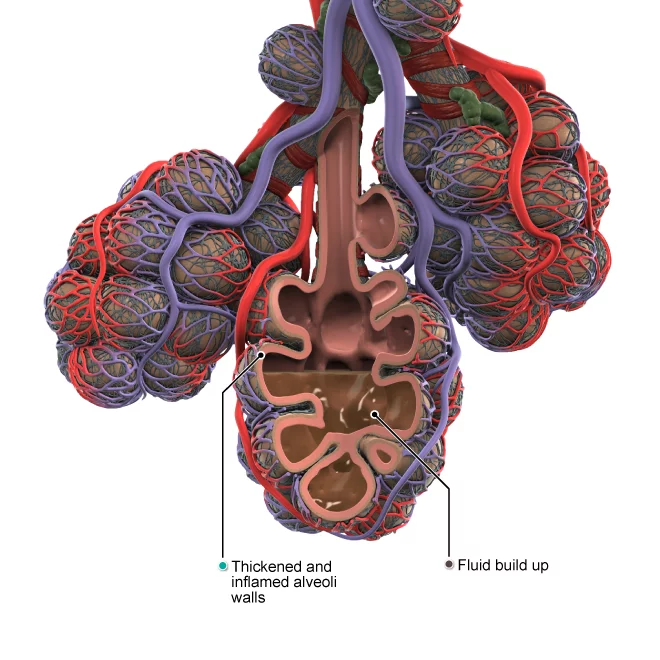Explore the region
Drag the image to rotate the anatomy
COVID-19 initially affects parts of the upper respiratory tract.
Infection of the upper respiratory tract results in mild symptoms such as a fever and a dry, continuous cough.
A fever is thought to develop as the immune system enhances to fight the virus and inhibit its further spread.
